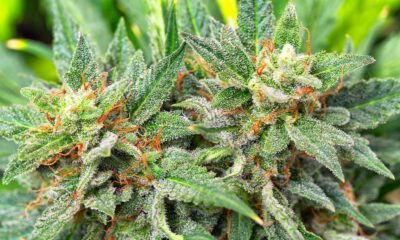
Joint Opinions
Monsanto May Turn Sights to Cannabis
The spread of medical marijuana will inevitably attract large corporate attempts to take over the market. Monsanto is hoping to invest in a developing science called RNA interference, or RNAi, with the desire of expanding the capability of farmers to grow more and stronger crops.
Chicago Now speculates that once this science can be used, Monsanto will turn their sights toward cannabis. While the company has not given any signal to this effect, the idea of agribusiness taking over the cannabis market is a growing concern and should not be ignored.
Monsanto has received a lot of heat over the years for creating genetically modified organisms, or GMOs, in the American agricultural business. Supplying 80-90 percent of corn and soy seeds throughout the nation, Monsanto is in most foods found on grocery store shelves. They also have their influence all over the American government, including in the FDA, EPA and other federal offices.
By manipulating the genes of crops they claim to have created foods that are more resilient to strong pesticides such as their RoundUp, to allow for easier farming and letting crops grow closer together. Unfortunately, this claim has started to turn out to perhaps be not as beneficial as Monsanto claims, and the quality of food, safety of the bee population and safety of our food has all started to come into question.
What would happen if Monsanto turned its sights to the developing market of cannabis?
Genetically Modified Cannabis
Monsanto could very likely see cannabis as a new, profitable crop for the company that takes in billions every year with countries such as Uruguay changing their regulations toward the plant. What is believed to be the most promising avenue for the agribusiness giant would be RNA interference, or RNAi.
The idea behind the name is that scientists will be able to manipulate how a seed’s RNA would interact with itself. In Spain, scientists have been able to change the color of a purple petunia, by altering how the genes speak to each other within the flower. While this is only a preliminary test, Monsanto is looking to explore RNAi science.
Well-versed cannabis growers already create GM crops by hand selecting good crops to breed together, making for higher quality cannabis, but this takes time, knowledge, and patience. RNAi could potentially make changing the THC or CBD levels in a strand easy and fast, making for less experienced growers to have successful crops without the expansive knowledge a current organic farmer now needs to possess.
The impact of this could be great in getting good cannabis more widespread, but there is also the darker side of the coin to take into account. While it is clear how RNAi can affect the plant being tested on, it will take a lot of science and research to find out if and how this kind of manipulation could affect humans who consume it.
An AgriBusiness Controlled Industry
A great fear of what Monsanto may do with the cannabis market if they are able to dominate it can be compared with that of the food market they already dominate. Monsanto’s main goal is to profit from the food industry and the government is backing Monsanto in ways that seem ludicrous.
The Supreme Court has decided that Monsanto has the ability to sue farmers whose crops are inadvertently contaminated by GMO seeds, so long as the company promises not to do so. Organic farmers believe that they should be able to sue if their fields are contaminated, not the opposite. David Murphy, founder of Food Democracy Now!, commented on a recent Supreme Court order that upheld Monsanto’s ability to sue farmers stating, “if Monsanto can patent seeds for financial gain, they should be forced to pay for contaminating a farmer’s field, not be allowed to sue them,” going on to conclude that, “once again, America’s farmers have been denied justice, while Monsanto’s reign of intimidation is allowed to continue in rural America.”
While the link to cannabis may not be immediately obvious, if Monsanto is able to patent a cannabis strain that turns out to be initially dominate of the market, like Charlotte’s Web for instance, farmers who choose to grow cannabis could easily fall prey to the standards that Monsanto already has in place for farmers and cannabis could be another product on the list of agribusiness-dominated crops.
The potential positives of pest resistant, easily manipulated levels of THC and CBD, and larger, more fruitful cannabis plants may sound like the way of the future. But the risks of GMO cannabis would take years to understand. With the still uncertain science of GMO foods, the potential of putting GMO cannabis on the market is a serious concern. And if companies such as Monsanto success in controlling the market, the choices could become limited.
While the stages of RNAi cannabis are still in its infancy, it is not too early to start a discussion about the positives and negatives of what this future market could bring.
What do you think? Should cannabis growers be fearful of Monsanto?
























